Composer Do Hong Quan is one of the leading musicians in Vietnam with folk song-inspired works that leave listeners with feelings of peace and relief in their soul. As the son of famous late musician Do Nhuan, Do Hong Quan is regarded as the true heir of his father, as stated by Prof., People’s Artist Trong Bang, who is the first orchestra conductor of Vietnam.
We had talks about his inspirations in composing at the headquarters of the Vietnam Musicians Association, where Do Hong Quan works as president. The musician said that the time he spent in the countryside of Yen Dung (Bac Giang) nurtured his soul and strongly affected his later work. For Do Hong Quan, the source of inspiration for composing is the rural space in the Vietnamese countryside, where he was brought up by good-natured farmers, in cosy atmosphere of an extended family.
Though facing several difficulties when the capital was evacuated, Do Nhuan still managed to take an old piano to the countryside for his son to practice on. Do Hong Quan emotionally said, “One day at the age of 4, my father gently held my hand and started teaching me to play the piano.” His famous work titled “Gui ve song Luc, nui Huyen” (For Luc River and Huyen Mountain) was inspired by feelings for the countryside of Luc Ngan and the lullaby his mother used to sing to her children.
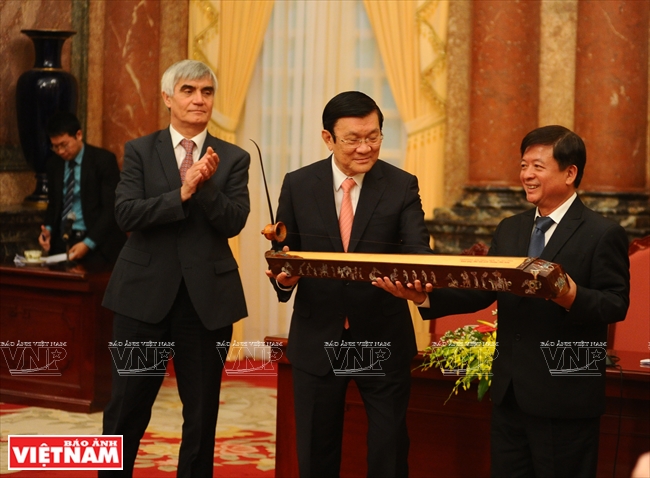
Do Hong Quan presents a dan bau (Vietnamese gourd lute) to State President Truong Tan Sang
in 2014 on behalf of the Vietnam Musicians Association. Photo: File
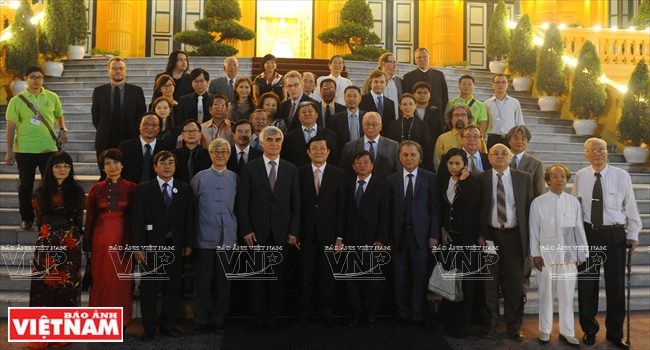
Do Hong Quan and foreign musicians met with State President Truong Tan Sang
at the Presidential Palace prior to the Asia-Europe Music Festival held in Vietnam in 2014. Photo: File
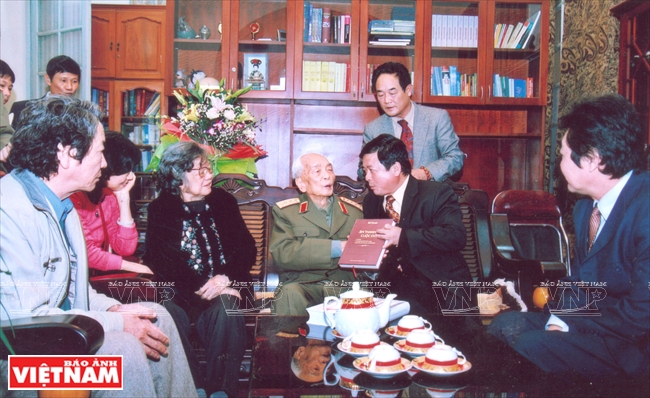
Do Hong Quan meets and presents a music book written by him to General Vo Nguyen Giap. Photo: File
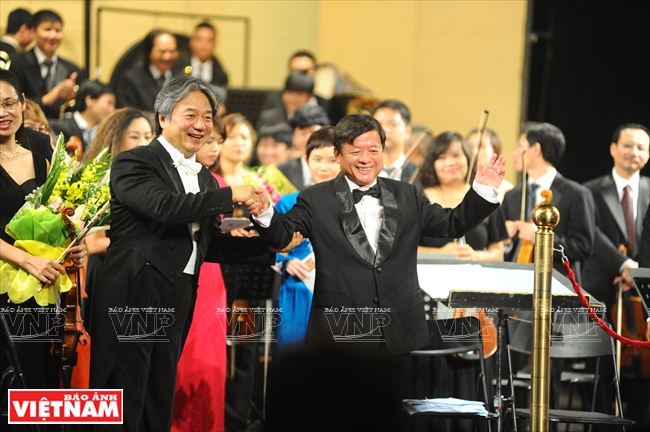
Musician Do Hong Quan plays the conductor role of the Asia-Europe Music Festival held in Vietnam in 2014. Photo: File
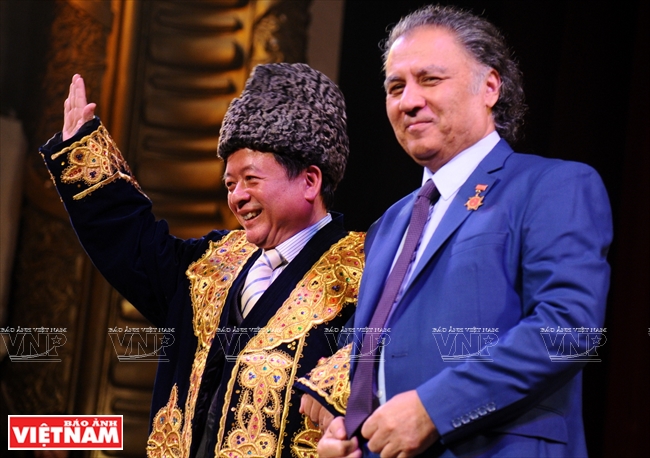
Do Hong Quan receives a cape and hat from the organisation board
of Asia-Europe Music Festival 2014 held in Hanoi. Photo: File
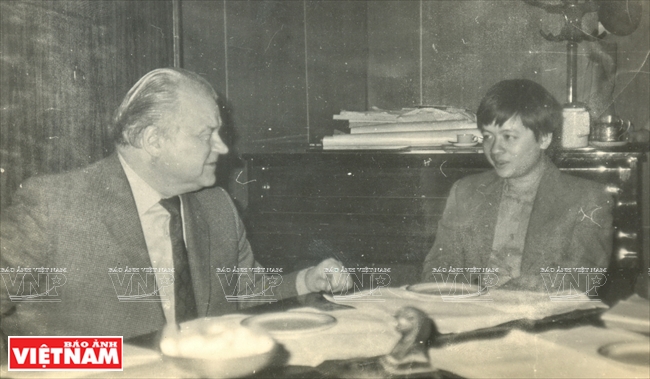
Musician Do Hong Quan during his studying period in the fomer Soviet Union. Photo: File
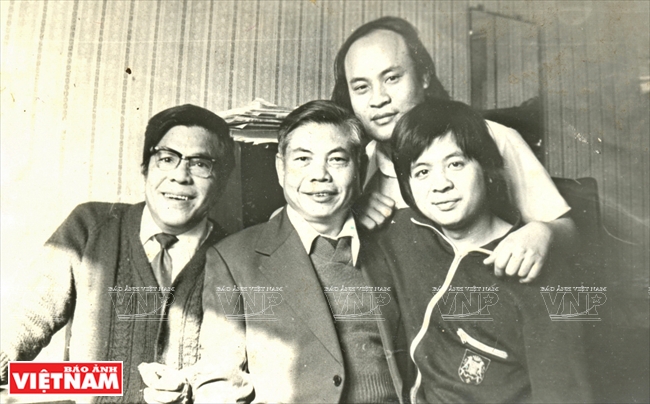
Do Hong Quan and his father, musician Do Nhuan (far left). Photo: File
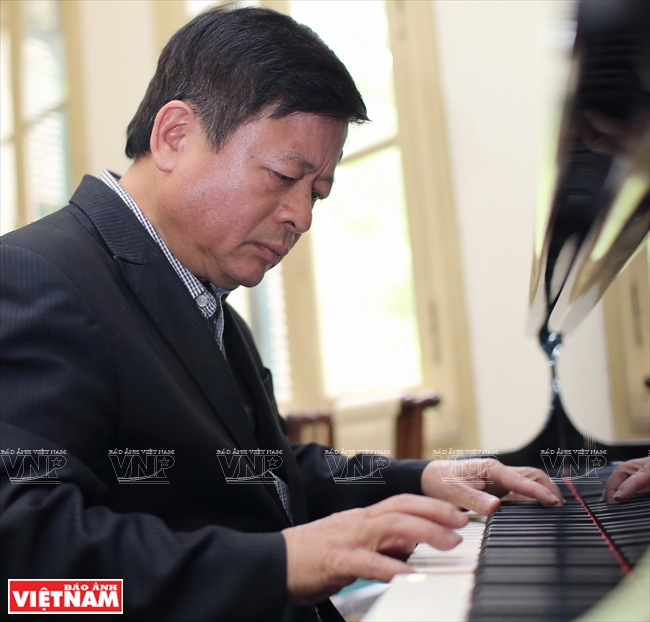
Do Hong Quan rehearses his newly composed musical piece. Photo: Tat Son
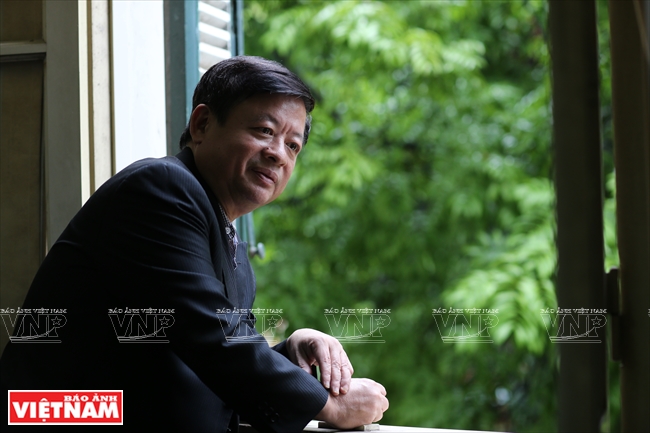
Musician Do Hong Quan (December, 2015). Photo: Tat Son |
Do Hong Quan’s first public performance, “Inh la oi”, took place at the Hanoi Opera House when he was a kid. That time he was so small that his father Do Nhuan had to pile up two small stools so that it was high enough for him to sit and play the piano. After the performance, he almost fell off the stools when he stood up with the laughter and applause of the audience.
After 9 years of training at the Tchaikovsky Conservatory (in the former Soviet Union), in 1986, Do Hong Quan came back to Vietnam, diligently worked and gained success in his field of instrumental music. He is well known for being an expert composer of instrumental music in Vietnam. His signature works such as “Hong hoang” (Primeval Age) ballet, “Nang Silami” (Silami The Girl) musical, “Chiec la dau tien” (The first leaf) album have a separate style and rhythm that cannot be mistaken for works of other musicians in Vietnamese music circles.
Do Hong Quan’s father, late musician Do Nhuan (1922-1991) was the first General Secretary of the Vietnam Musicians Association for its first two tenures (1958-1983). Do Nhuan is also one of the pioneers in revolutionary music. He is the first Vietnamese musician to write the opera “Co Sao” (Aunt Sao) and is the composer of the famous “Du kich song Thao” (Guerrillas of Thao River).
|
Story: Thao Vy - Photos: Tat Son & Files